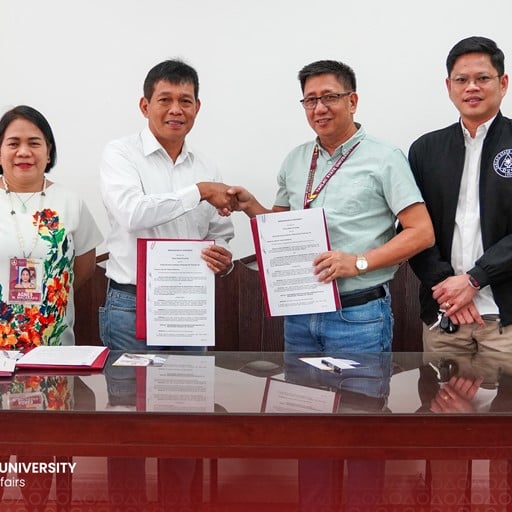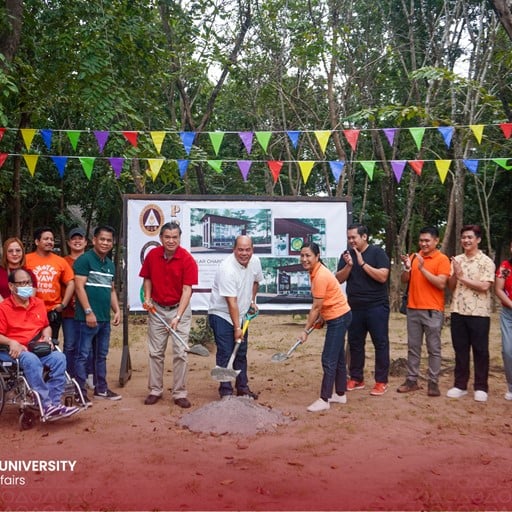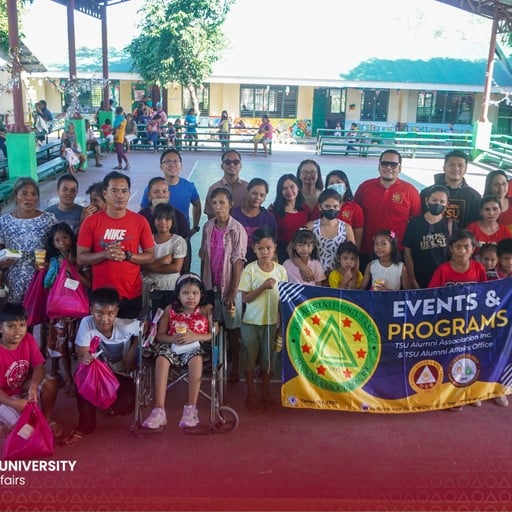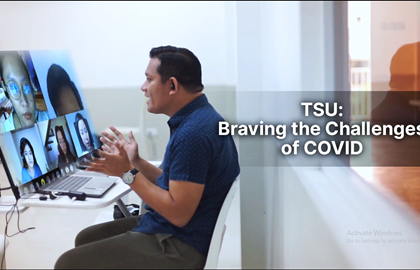For the third day of TSU's Training of Trainers for Community Sports and Wellness Impact, the trainers and coaches presented their frameworks covering needs assessment and goal setting.
This output from their activity will determine their targets and needs as well as the government offices, schools, agencies, key stakeholders, community organizations, and healthcare providers they need to tap.
The participants also conducted a comprehensive report to develop a program structure where they can create training schedules, workshops, and fitness activities accessible to all ages, professions, and backgrounds or statuses in life in the diverse community.
Coach Yango lauded the coaches' insights in involving the parents in their framework, emphasizing that the parents' support of every athlete is vital to their performance and well-being.
The coaches and trainers shared the common problems they often encounter, like the procurement of training equipment, funding and support from government heads, and matters concerning the athletes' health.
“It is very important na kayo po ['yung manguna sa training], kasi kayo yung nasa grounds. Kayo po 'yung nakaka-experience from different sports. Kayo po ang nakakaalam kung ano po ang kailangan nating i-address," Provincial Sports Coordinator Mr. John Allan Brylle Manalang told the participants as a feedback to the presented frameworks.
"So, dahil po sa mga feedback ninyo, na-identify na po natin kung sino po 'yung mga stakeholders, o 'yung mga kailangan po nating i-tap o inform o kailangang maging aware sa larangan ng sports," he added.
Mr. Manalang said that the "training of trainers" is just the first of many legs of the university's community sports and wellness PATH program.
Prof. Alberto Dimarucut from the University of the Philippines' College of Human Kinetics enlightened the participants with his topic on integrated sports science and technical skills training.
He tackled the importance of the scientific principles of sports science with skills development, conditioning programs, and evidence-based strategies for athletes, including nutrition and diet.
"It is very important that you understand what you drink, what you eat, and whatever you do that gets inside your body. And this one is very important for the coaches – pag gusto mo silang tumakbo nang mas mabilis, ano ang kailangang intake, and [you need] to watch the athlete's weight because some events require certain weight," Prof. Dimarucut said.
Likewise, he discussed the aspects and factors of biomechanics, physiology, skills acquisition, transfer of learning, feedback, deliberate practice, visual and cognitive training, and periodization, among others.
He also referred to Prof. Geronimo's topic on psychology, noting its connection to sports science, particularly in considering the coaches' and athletes' mental health during training and competitions.
"Not only with the body but on how the mental (health) and emotions, the behavior of the person is very important on how you handle it; not only your athletes but also you as the coaches. You need to know your character, your behavior, kung kailan ka nagagalit, kailan isu-supress, paano mo minomotivate ito not only your athlete but also yourself,” he added.
Prof. Dimarucut also mentioned the recovery strategies, such as fluid replacements and exercise prescriptions, that the coaches should note.
"You need to understand certain recovery strategies, like how much water (to take), when is the time to sit, rest, how much sleep you need, hydration, and some aspects to avoid overtraining that can affect the athlete's performance," he said. (jlmm-OPA)
Photo by Eduardo F. Laxamana, Jr.








